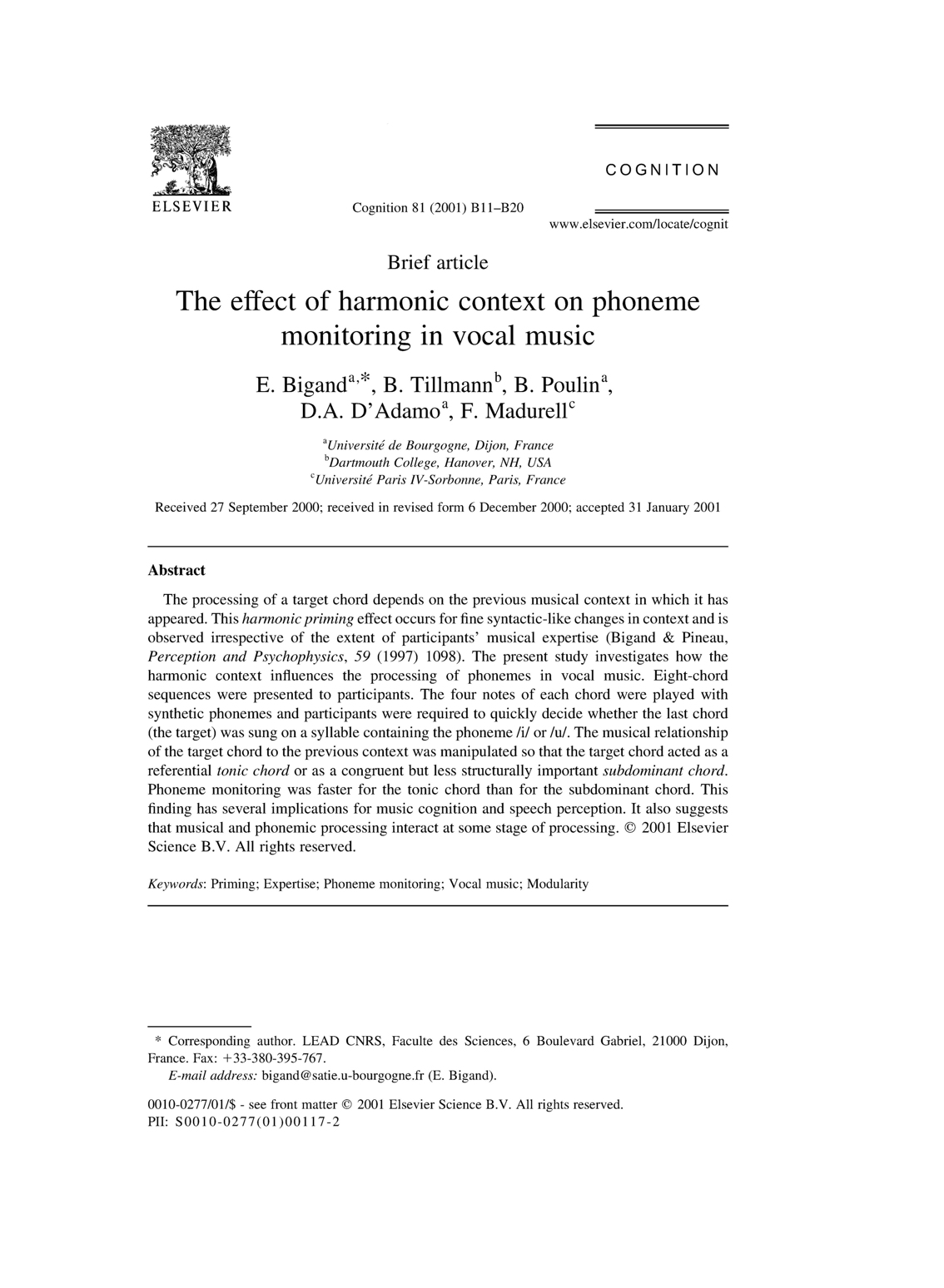The processing of a target chord depends on the previous musical context in which it has appeared. This harmonic priming effect occurs for fine syntactic-like changes in context and is observed irrespective of the extent of participants’ musical expertise (Bigand & Pineau, Perception and Psychophysics, 59 (1997) 1098). The present study investigates how the harmonic context influences the processing of phonemes in vocal music. Eight-chord sequences were presented to participants. The four notes of each chord were played with synthetic phonemes and participants were required to quickly decide whether the last chord (the target) was sung on a syllable containing the phoneme /i/ or /u/. The musical relationship of the target chord to the previous context was manipulated so that the target chord acted as a referential tonic chord or as a congruent but less structurally important subdominant chord. Phoneme monitoring was faster for the tonic chord than for the subdominant chord, This finding has several implications for music cognition and speech perception. It also suggests that musical and phonemic processing interact at some stage of processing.
The effect of harmonic context on phoneme monitoring in vocal music
